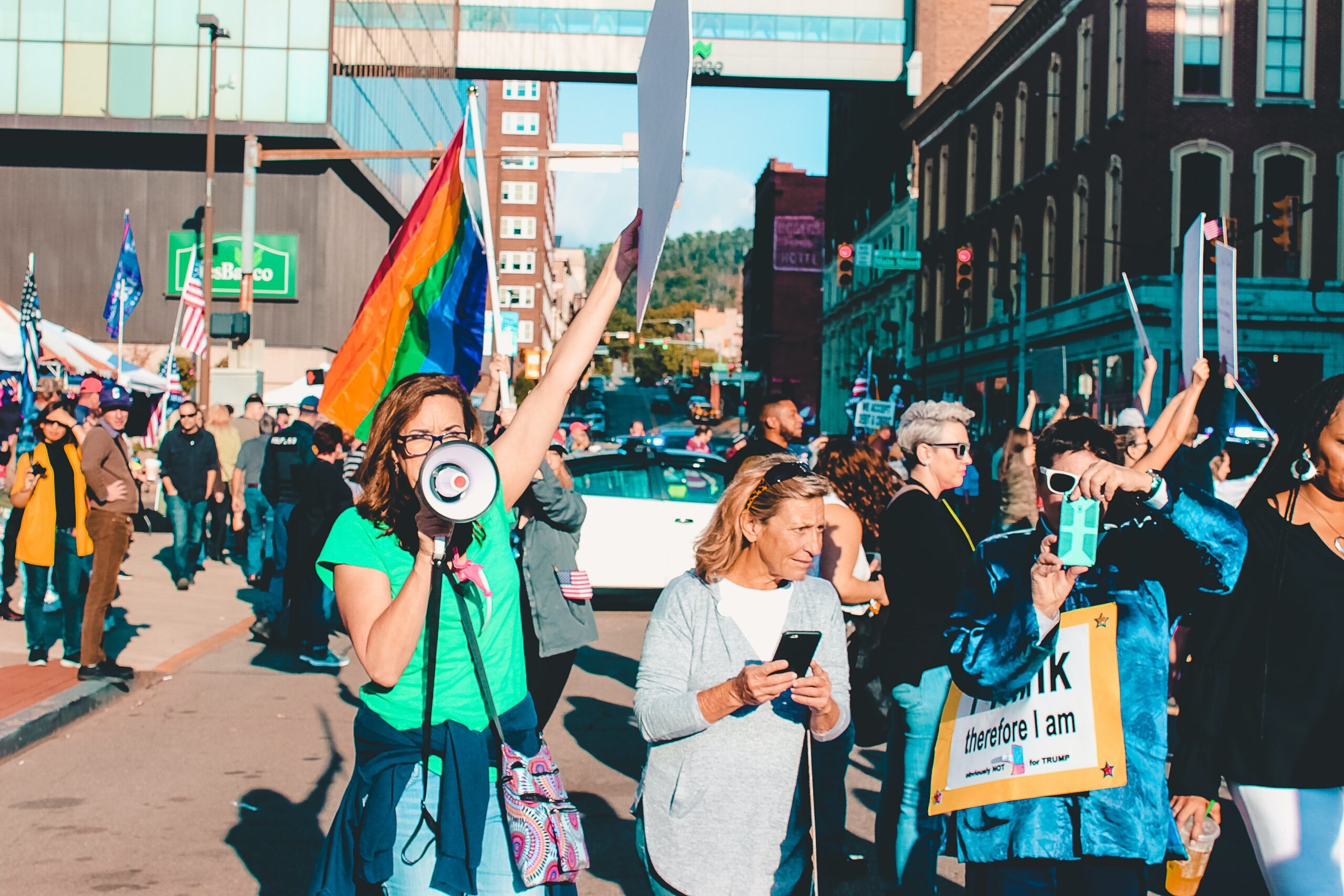Have you given any thought to moving away from the Philippines permanently or starting a new life somewhere else in the world? Both of them seem like worthwhile pursuits; nevertheless, the decision ultimately comes down to the priorities you place and the resources you have available. Moving to a new country might be thrilling and adventurous, but returning to the Philippines can be soothing and bring back fond memories.
If you are searching for direction on what to do with your life, we are able to assist you in making a decision and provide you with clarity because both options involve a large number of considerations, it can be challenging to choose which path to choose in your life.
1. Consider the job and career opportunities
Your first order of business should be to conduct an analysis of the career opportunities available in both your current area and in the Philippines. Do some research into different fields, job marketplaces, and the need for abilities similar to yours. Consider the prospective earnings, advancement opportunities, and long-term stability of each place. What makes these considerations so important?
Because of this, if you are considering moving to a different country and making a permanent relocation there, whether as an international student, because you have an offer of employment as a skilled worker, because your family already lives there, or for any other reason, you should consider the following. You need to think about why you are moving overseas and what to anticipate in terms of your job. Keep in mind that even if you’re already quite far along in your career, cultural differences and the fact that you don’t have any local experience in the new country you’re planning to relocate in imply that you will have to start from the very beginning.
If, on the other hand, you are going there because of a job offer, you should investigate the legitimacy of the firm recruiting you and determine whether or not they have a long-term plan for you. You have an obligation to investigate whether or not the country to which you intend to relocate has a demand for the occupation that you currently have. On the other hand, if you intend to travel back to your native country, ask yourself if you are prepared for the significant adjustment in your way of life.
Do you have enough money to sustain yourself or your family, and if you wish to make a shift in your work, is it possible for you to do so at this point? Or perhaps you are thinking about starting a new venture when you return back to your hometown. You need to think about job and career options in order to figure out what you will do in the Philippines. Additionally, you should prepare a backup plan in the event that you ever want to go back to your home country in the event that things do not go as planned.
2. Check the economies
Evaluate the cost of living in both locations, taking into account such factors as the cost of housing, healthcare, and education, as well as transportation costs. Think about how much money you could potentially make as well as the current state of the economy.
The financial concerns are constantly among the most important things to worry about, it is impossible for you to avoid considering the possibility of making a move to a new country or returning to the Philippines. You need to take into consideration how well the economy of the nation is doing and whether or not there is inflation. or the financial crisis? because consideration of these aspects will help you determine what should take precedence. Is it more likely that life will be better outside of the Philippines or here at home?
4. Consider your family and friends
Are you ready to let your relationships go? Consider the relationships that bind you personally, including those with your family and other support systems. Consider how much being close to your loved ones means to you and how their lives might be altered as a result of the decision you make. Why do you want to start a new life somewhere else? This is a crucial question that you need to ask yourself, and it’s one of the most significant questions. Is it because you want to provide a bright future for your loved ones?
If you’re a single person who wants to start a new life by moving to a different country, is it because your family already lives there or because you have relatives who can assist you in easily settling in there? Are you able to handle the feelings of homesickness that will come from being apart from your loved ones back in your hometown?
Moving to a new location requires a lot of compromise and giving up of things that are important to you in order to be successful. You cannot neglect your family because their support will determine whether or not you are successful in your migration adventure. One more thing to think about is whether or not you will be happy when you return to the Philippines from your trip. Will you be content to be with your family regardless of whether you have a plan or not, given that there are times when unexpected things will take place?
4. Lifestyle and cultural considerations
Take into account your personal preferences in terms of lifestyle, culture, and the level of quality of life that you seek. Evaluate how well you are able to adjust to the local culture, language, and social environment in the Philippines in comparison to where you are now living. You must take into consideration the change in lifestyle that will occur when you migrate, as well as the change in lifestyle that will occur when you return home to the Philippines; both transfers will involve significant adjustments that will require you to adapt as an OFW.
If you work in Spain, you’re probably used to having dinner late at night, but in the Philippines, dining early is the norm. If you work in Spain, you might be familiar with this. If you work in Australia, you might be accustomed to malls closing as early as 5 p.m., but in the Philippines, malls don’t close until 9 or 10 p.m. at night. Because of the significant influence it will have on your way of life, there are numerous differences that need to be taken into consideration.
5. Get to know the political and social stability
Analyze the social and political environment in both of these places. Think about things like how safe it is, how secure it is, how stable the government is, and how good the governance is generally. When deciding whether or not to migrate to another country or return to the Philippines, one of the most important things you should think about is your own safety.
You need to evaluate if the country to which you intend to immigrate is secure for Asians or how well migrants are integrated into the country. For instance, in the United States and Canada, there has been an increase in Asian hate crimes, which is something you need to take into consideration; however, this is not the case in other countries. It is important to take into account the political and social stability in the Philippines since there’s corruption and more.
6. Study the educational system
If you want to move to a new country and start your new life as an international student, or if you want your children to have a better future by going to school in another country and to increase their chances of having a successful profession, then you should consider migrating. Analyze the country of the Philippines with regard to its educational and medical service systems. Find out if they are up to your expectations and whether or not they can satisfactorily meet the requirements that you and your family have.
However, another element that you need to take into consideration is that the education system in the Philippines is also good. The vast majority of students from other countries, ranging from Nigerians to South Koreans, choose to study in the Philippines. Finding a way to study in the Philippines that is both affordable and competitive with other educational options available internationally is possible. If you are truly interested in changing your lifestyle and enhancing your education by either studying in another country or living there permanently, you are free to do so.
7. Get to know the health care system
Naturally, relocating to a different country in order to improve one’s health has always been a top goal for some individuals, and that’s OK; there are plenty of valid reasons for doing so, including the requirement of more modern medical technology and infrastructure: The healthcare systems of many industrialized countries have cutting-edge medical facilities, advanced technology, and innovative treatment options as a direct result of the substantial investments made in these systems.
These innovations may result in increased diagnostic skills, enhanced therapeutic efficacy, and favorable outcomes for patients. Migrating to another country for medical care might have a number of possible benefits; however, it is vital to keep in mind that these benefits can change based on the particular nation and healthcare system that is being contrasted with the one in the Philippines.
Some nations are known to be particularly attractive to leading medical professionals and other types of specialists. Migration to such nations might provide access to a wider variety of professionals and experts who might not be as easily accessible in the Philippines. This can be an advantage for Filipinos looking to advance their careers. This may be especially pertinent in the case of medical disorders that are unusual or complex and call for expert treatment.
The Philippines possesses highly trained medical experts in addition to healthcare institutions that deliver high-quality care. The choice to relocate in search of better medical care is one that must be made on an individual basis, taking into account factors such as the nature of the patient’s illness, available financial resources, and personal preferences. It is best to discuss any potential choices with trained medical professionals and give some thought to getting a second opinion before settling on a course of action. This will allow you to thoroughly explore all of your choices and make an intelligent decision.
8. Establish your long-term plans and goals
Think about your hopes and ambitions for the years to come. Consider if your goals involve professional advancement, personal growth, or some combination of these and other aspects when deciding which area is the best fit for you. It is vital to think about your long-term goals while deciding whether to move abroad or return to the Philippines because there are many things to think about in each scenario. If you are moving abroad, is it because you want to have a better life or career? Do you wish to make a permanent move somewhere else in the Philippines? want to get married and begin a family or launch a new venture? There are a lot of things to think about.
It is not an easy task to move to a different country because there are many things to think about and preparations to make beforehand. Therefore, while you are still debating whether or not you should migrate or return home to the Philippines, you should look into the visa requirements of the nation to which you would like to move.
There are a variety of visa types, including work visas, student visas, family visas, and skilled migration visas, that are offered by different countries. Gain an understanding of the criteria for qualifying, the application process, and any additional requirements or evidence that must be provided when applying for a visa. Make sure you are familiar with the immigration policies and regulations of the country you plan to visit before you leave. Get familiar with the regulations governing admission, residency, and work permits, as well as any restrictions or prohibitions that may be imposed on inhabitants of the Philippines.
At the same time, if you travel back to your hometown in the Philippines. When it comes to the visa and the conditions, you won’t need to give it much thought, especially if you are a citizen of the Philippines. You are still able to travel back to the Philippines and seamlessly blend there even if you have some foreign blood in your family tree.
9. Think about your budget realistically
It is essential to build a budget that is based on reality, to carry out extensive study, and to speak with financial counselors or other specialists who can provide direction based on your particular circumstances. Your new life in another country will have a solid footing if you do some careful financial planning before you move there. This will assist ensure a smooth transition.
Conducting research on and making a comparison of the cost of living in the nation to which you intend to immigrate can be one of the things you do to assist you decide whether or not to leave the Philippines and start a new life elsewhere or whether or not to return home. Think about things like where you’ll live, how you’ll get around, what you’ll eat, how you’ll get medical care and education, and how much you’ll pay for taxes. Determine whether or not the financial resources you currently possess are sufficient to pay the charges that are anticipated to be incurred in your new location.
You have a responsibility to familiarize yourself with the current rates of exchange between the Philippine Peso (PHP) and the currency of the country in which you will be vacationing. Changes in the value of your savings or income might be impacted by fluctuations in exchange rates, which can have a negative influence on your overall financial stability.
It is of the utmost importance that you give some thought to the career opportunities and the possible money you could earn in the new country. Conduct research on the job market, including information on average pay and employment opportunities in your field. Find out if your educational background and professional experience are in demand, and evaluate whether or not you’ll be able to land a job that’s a good fit for you and can help you fulfill your financial obligations.
Don’t overlook the importance of analyzing your present savings and your available financial reserves. It is recommended to have a financial safety net in place before to moving in order to cover early expenses, such as those associated with finding housing and transportation, as well as the cost of relocating to a new location. Having a significant amount of money can also give a buffer throughout the initial period of job hunting or during the period of transitioning to a new work environment.
It would be difficult to choose between the two. Consider the expenditures involved, particularly if you intend to continue your schooling or seek medical treatment in the new nation, if you have dependents, or if you intend to pursue other activities. Investigate the costs associated with attending a college or university, as well as the premiums and out-of-pocket costs associated with medical care, to determine whether or not your existing financial resources are able to support the addition of these extra financial obligations.
Get yourself acquainted with the new country’s tax regulations and financial requirements as soon as possible. Find out whether you will be required to pay income tax, property tax, or any of the other types of taxation. To gain a better understanding of your tax duties and obligations, it is highly recommended that you seek the assistance of tax specialists such as accountants or tax consultants.
However If you intend to send money to your family or other dependents who live in the Philippines, you should take into consideration the influence this will have on your entire financial condition as well as the expense of sending money there. Investigate the means that are both cheapest and safest for sending money back to your family and friends back in your native country.
If you plan to go back home in the Philippines, Assess both your stable financial position and your resources. Think about your cash on hand, any investments you’ve made, and any financial obligations you have, such as loans or mortgages. Check to see if you have enough money stashed away to support yourself and your family through the transition time when you get back to the Philippines.
10. Consider your welfare
If you plan to go back home in the Philippines, Think about your sense of belonging and your loyalty to the culture, community, and country in which you were raised. Think about how important it is for you to be surrounded by things that are familiar to you, such as traditions and the network of loved ones who can provide support for you. Consider whether you have a strong emotional connection to the country in where you were born and how that connection might affect the decision you make.
While if you want to migrate abroad, Consider how eager and able you are to adopt a new way of life as well as a different culture. Think about the difficulties that could arise as a result of learning a new language, adjusting to various social standards, and dealing with cultural differences. Think about how comfortable you are with different cultures and the potential emotional impact that living in a different culture could have on you.
Take into consideration both your mental and emotional state of well-being. Consider how your current circumstances affect your level of contentment and stress as well as your mental health in general, and adjust accordingly. Consider the emotional advantages and disadvantages that could result from relocating to a new country, such as the Philippines, or moving away from the country altogether. Think about whether the prospects for personal fulfillment and career progress in the country in which you are now live or in the Philippines are more aligned with the things you want to accomplish in your life. Evaluate how vital it is for you to follow your passions and attain your aspirations in a given location.









